|
In the United States, the terms "hot chocolate" and "hot cocoa" are used pretty interchangeably, but they aren't quite the same thing! Hot ChocolateHot chocolate is a truly ancient drink, dating back as many as 3000 years. Developed by ancient Indigenous people in Mesoamerica, the cacao bean was used by the Olmecs and drinking chocolate perfected by the Maya and Aztecs. A mixture of ground roasted cacao beans, spices, including chili peppers and vanilla, sometimes sweetened with honey, and often containing other ingredients, including ground maize and cochineal to color it red, early drinking chocolate was frothed into a foam and consumed as part of religious ceremonies. In the late 16th century, Spanish invaders had brought cocoa beans - and drinking chocolate - back to Spain, where it quickly spread throughout aristocratic Europe. It came to colonial America via Europe in the late 17th century, where cocoa processors started importing direct from Central America and the Caribbean. Hot chocolate became a fashionable breakfast beverage. But how was it made? Processed cocoa beans were fermented in the pulp, then dried, then roasted. Chopped into nibs, they were then stone ground to create a chocolate paste. Mixed with sugar, hot water, and spices, the bitter drink was served with cream and sugar, much like coffee or tea. By the 18th century, cakes of processed chocolate were being produced for transformation into drinking chocolate. In the mid-19th century, cocoa butter and sugar were added to the cacao and through conching and tempering, eating chocolate developed. By the Victorian period, hot chocolate had transformed from a popular adult beverage on par with coffee and tea, to the purview of children. Hot CocoaPart of the shift from breakfast beverage of aristocrats to children's treat had to do with the fact that both cacao and sugar were increasing in production and therefore dropping in price throughout the 19th century. Cocoa production expanded to other equatorial areas besides Mesoamerica and sugar, fueled by slavery and technological advances, also increased in production. The development of cocoa powder in the 1820s helped expand access to chocolate. Cocoa powder is created by melting or pressing the cocoa butter out of the nibs, then drying and grinding the defatted cocoa beans. Lighter weight, more shelf stable, and easier to blend into beverages than drinking chocolate, cocoa powder became the main ingredient in hot cocoa recipes. Most cocoa powder was natural process, like Hershey's, meaning that it was dried and ground after the Broma process of defatting. But some cocoa powders (like Fry's) were Dutched, or created using the Dutch process, which meant that the defatted cocoa nibs were immersed in an alkaline solution to help neutralize some of their natural acidity before being dried and ground. Natural cocoa is reddish brown in color - Dutch process color is a dark grayish brown. So there you have it! The difference between hot chocolate and hot cocoa is that one is made from melted cocoa, usually 100% cacao unsweetened chocolate, and hot cocoa is made from a mixture of cocoa powder and sugar, often cooked into a syrup. But how do you know which one you prefer? Hot chocolate or hot cocoa? Try these historic recipes and find out! Baker's Hot Chocolate Recipe (1936)I made this recipe as part of a talk on hot chocolate history, and while not very sweet, it is very rich and chocolatey. If you are a chocoholic, this is the recipe for you. Please note that you'll need Baker's Unsweetened 100% Cacao Chocolate, and that these days 2 squares is really 2 ounces, or 8 quarter ounce rectangles. 2 squares Baker's Unsweetened Chocolate 1 cup water 3 tablespoons sugar dash of salt 3 cups milk Add chocolate to water in top of double boiler and place over low flame, stirring until chocolate is melted and blended. Add sugar and salt and boil [over direct heat] 4 minutes, stirring constantly [this will boil off most of the water and make a thick syrupy chocolate]. Place over boiling water, add milk gradually, stirring constantly; then heat. Just before serving, beat with rotary egg beater until light and frothy. Serves 6. Hershey's Single Serve Hot Cocoa Recipe (1937)For each cup, use one heaping teaspoonful HERSHEY'S COCOA and one teaspoonful sugar [I used a heaping spoonful, which it needed]. Mix dry and add four tablespoons hot water to make a paste. Heat to boiling point and add one cupful milk and again bring to boiling point. DO NOT BOIL. You can use either natural process or Dutch process cocoa for this one. It is not as thick and rich as the Baker's hot chocolate, but it does have that familiar cocoa taste from childhood and is still quite good. You can always change these recipes to suit your tastes with more sugar or with half and half or part cream, instead of all milk. Top with whipped cream, marshmallows, or try your hand at Indigenous-inspired spices like chili powder, cinnamon, vanilla, etc. You can also substitute almond milk (the most historical substitution, since almond milk was known in 16th century Europe), or any other non-dairy milk. Which do you prefer, hot chocolate or hot cocoa? And how do you like yours prepared? I like mine extra-creamy with whipped cream. Maybe a little peppermint or salted caramel syrup if I'm feeling extra-indulgent. Share your perfect cup in the comments! These recipes are part of a talk with cooking demonstration on the history of hot chocolate I do for public events. For upcoming programs, visit my Event page. The Food Historian blog is supported by patrons on Patreon! Join us for awesome members-only content like free digitized cookbooks from my personal collection, e-newsletter, and even snail mail from time to time!
1 Comment
|
AuthorSarah Wassberg Johnson has an MA in Public History from the University at Albany and studies early 20th century food history. Archives
July 2024
Categories
All
|
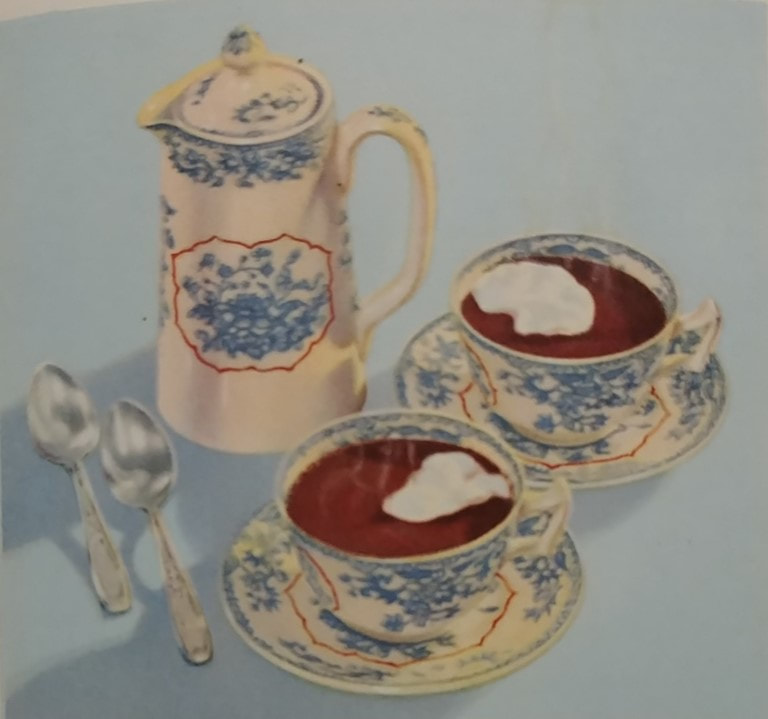
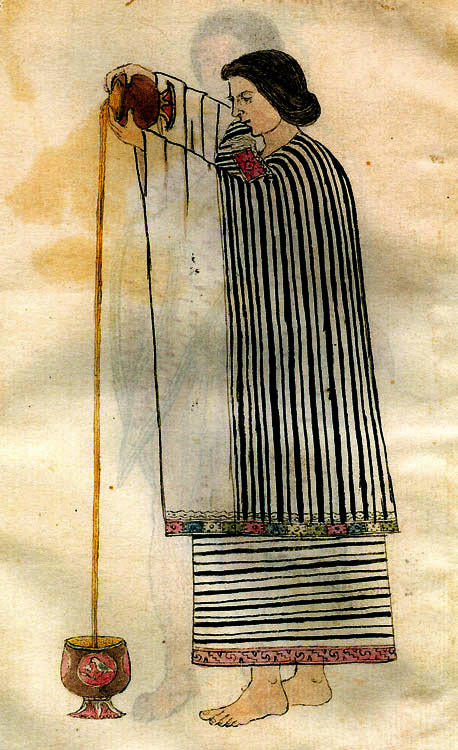
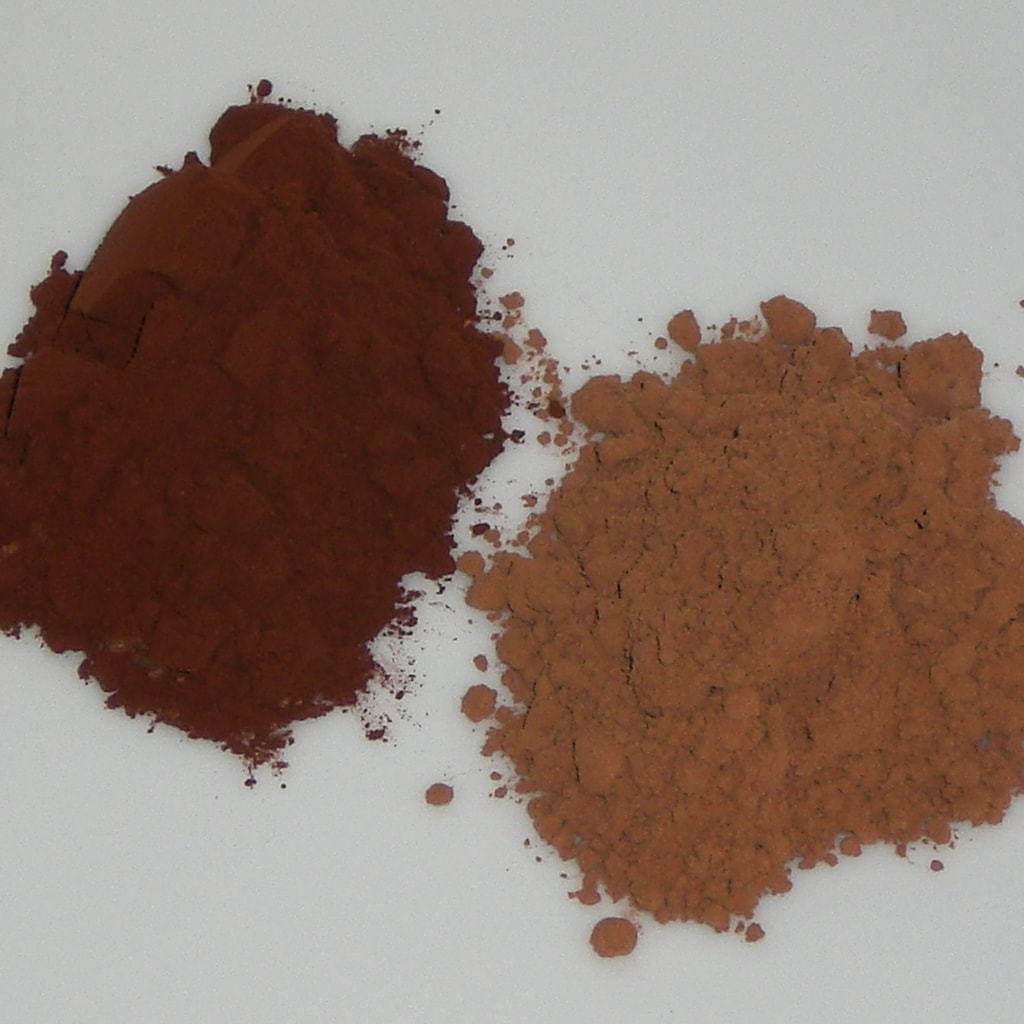
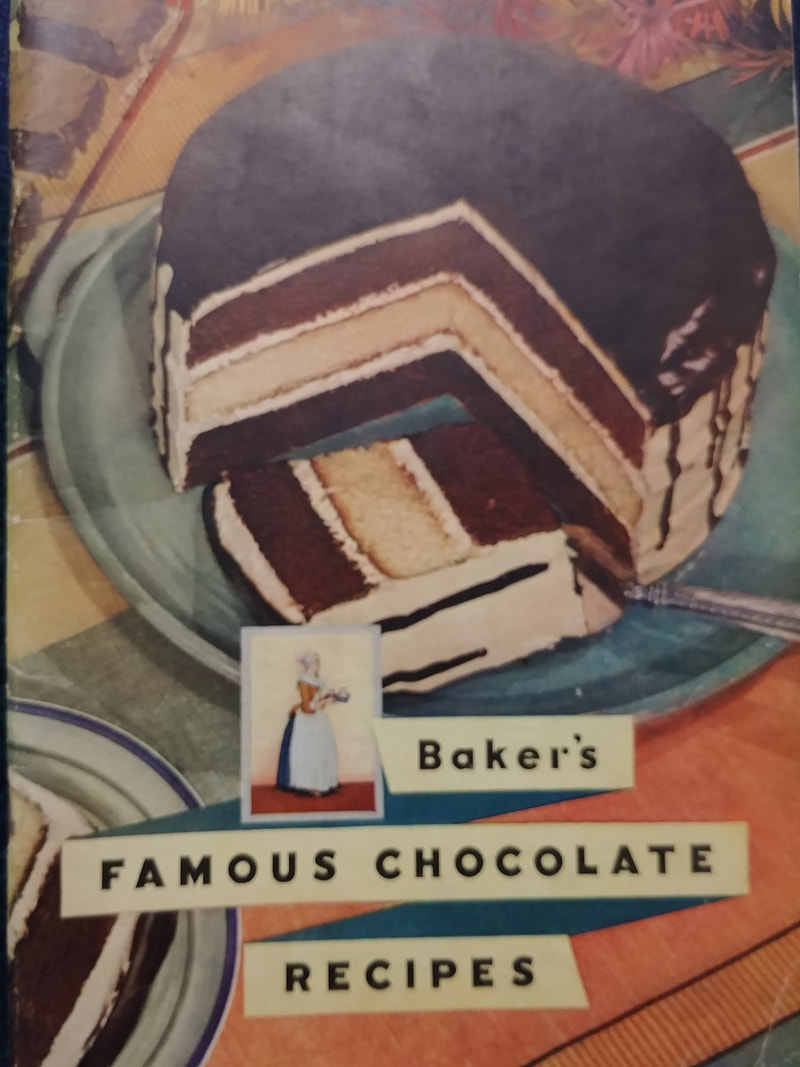
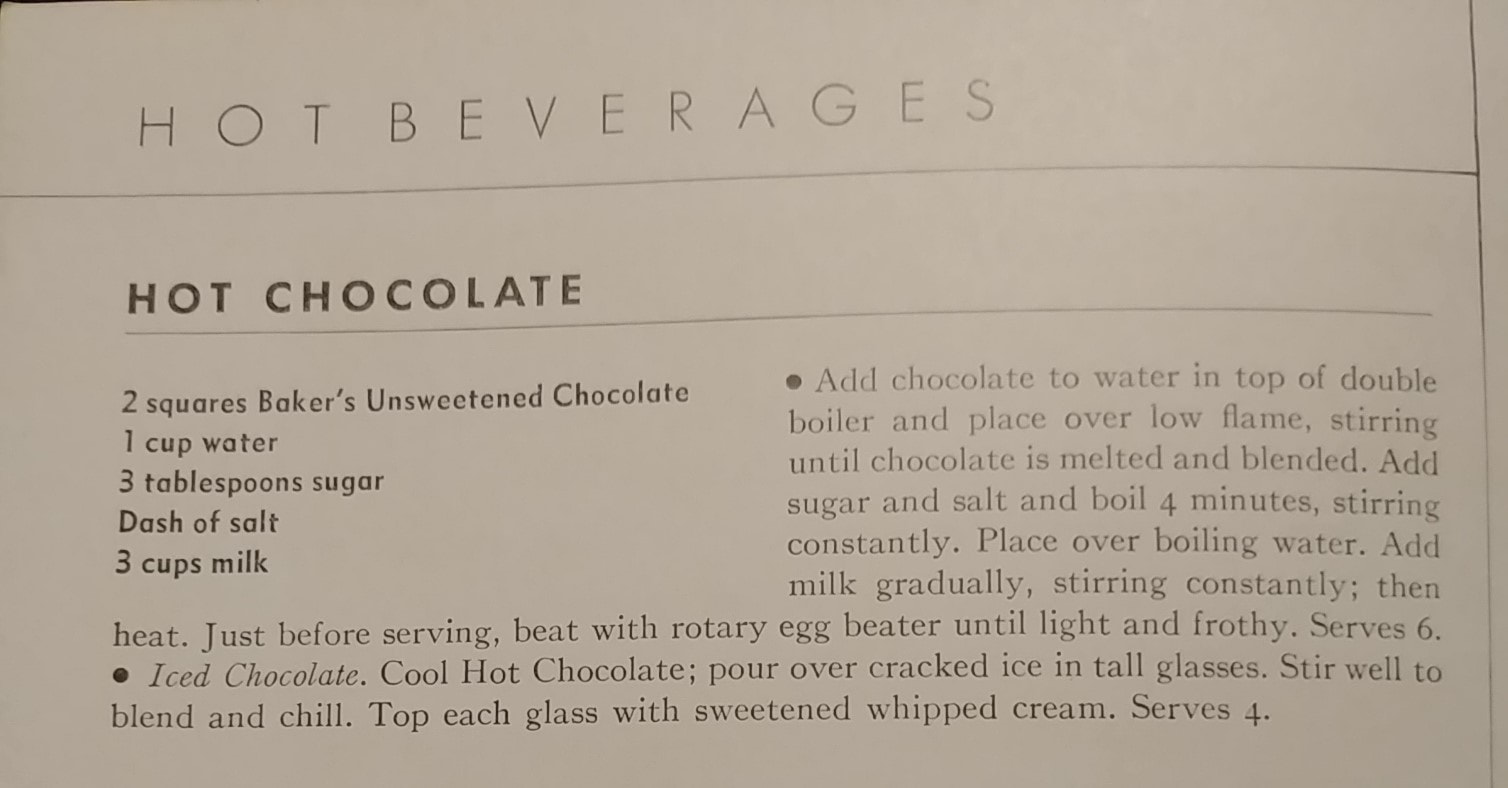
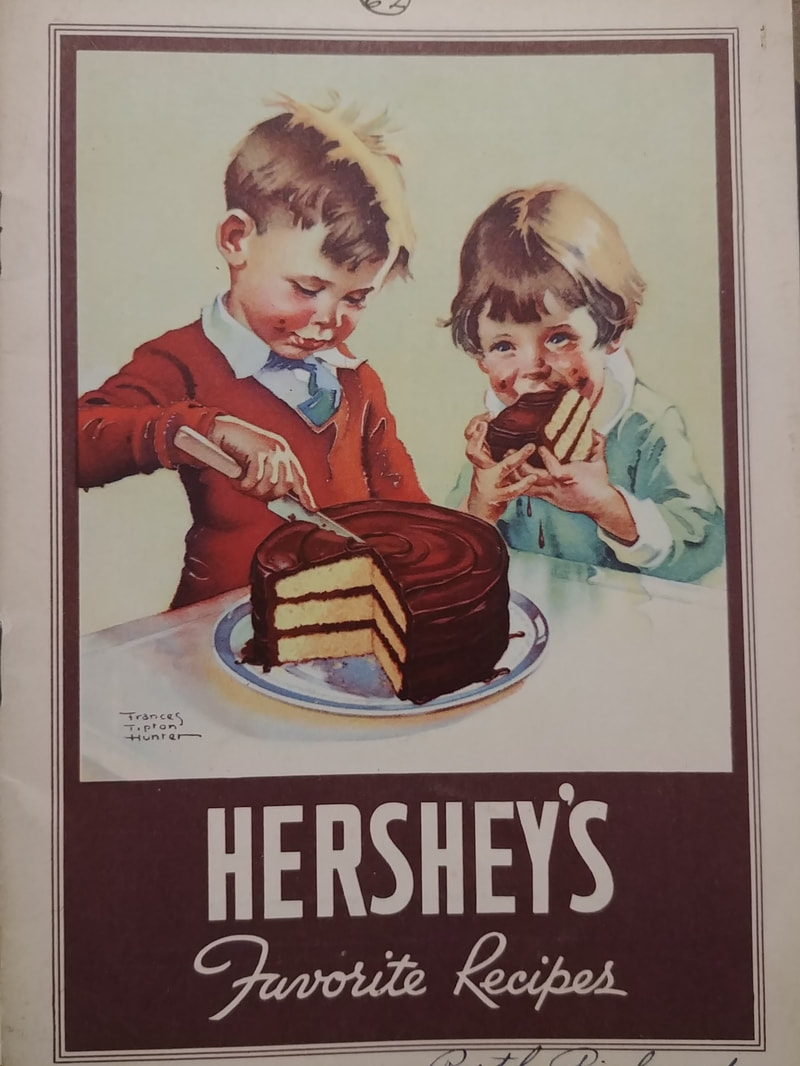
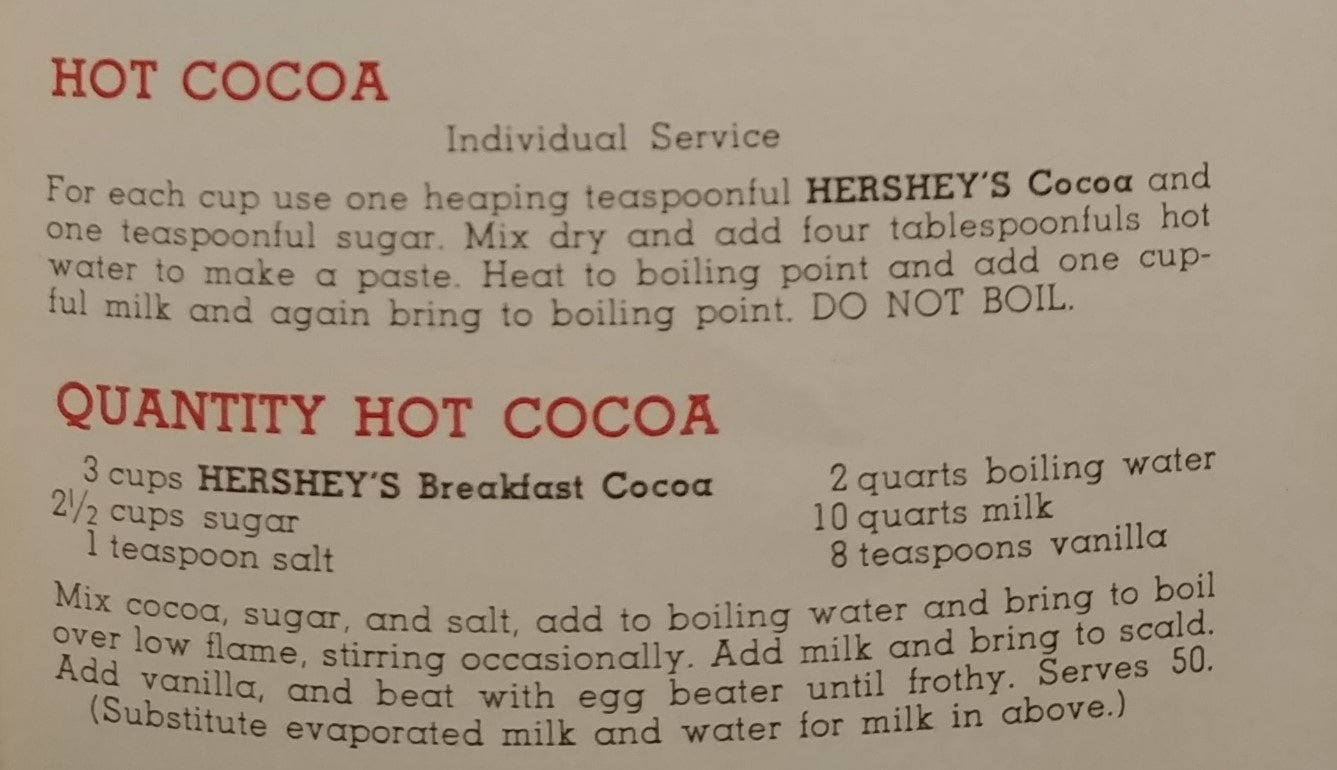
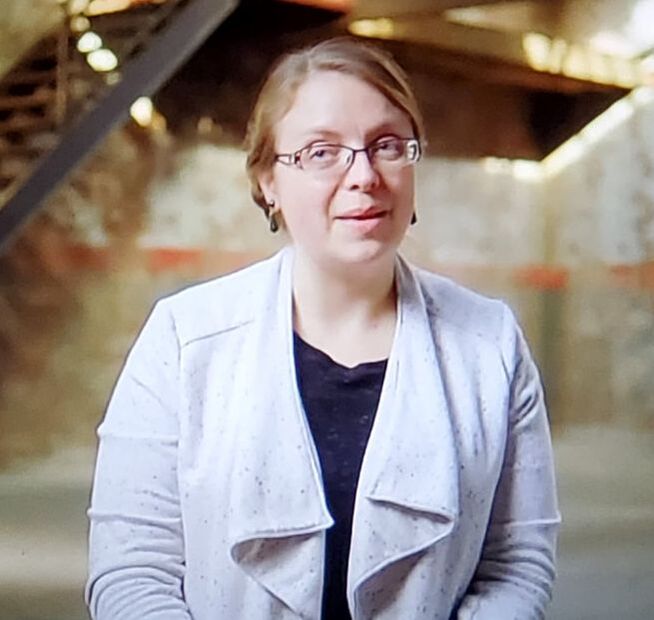
 RSS Feed
RSS Feed